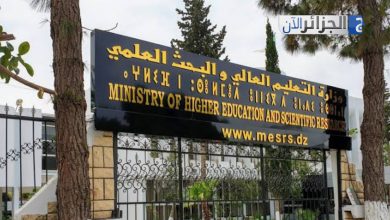On Wednesday, November 27, 2024, the annual meeting of the African Academies of Sciences (AMASA 2024) concluded in Algiers, hosted at the “Abdelatif Rahal” International Conference Center. The event brought together leading scientists, academicians, and researchers from across Africa to discuss critical issues facing the continent in fields such as health, technology, and environmental challenges.
During the event, Dr. Mohamed Hicham Ghara, President of the Algerian Academy of Sciences and Technologies, emphasized that Algeria has been a member of the African Network of Academies of Sciences since 2018. Hosting this year’s edition aligns with the directives of President Abdelmadjid Tebboune to strengthen Algeria’s relations with Africa in various fields, particularly in economics, scientific research, and academia. Ghara highlighted the importance of discussing key topics such as public health, the impact of natural disasters on the environment, and the health of African citizens.
He also underscored the need for increased collaboration between African researchers to curb the migration of skilled scientists to other countries. He stressed the importance of protecting and utilizing Africa’s natural resources locally, particularly through the adoption of technology and local innovation.
In a significant move, Ghara announced an agreement for cooperation between the Algerian Academy of Sciences and Technologies and the Palestinian Academy of Sciences and Technology. This agreement, titled “The Bridge of Sciences,” will facilitate joint scientific conferences, academic exchanges, and the training of Palestinian students by Algerian professors in various fields. This partnership is part of Algeria’s ongoing support for the Palestinian cause and other just causes worldwide.
One of the key discussions during the meeting was on the use of Artificial Intelligence (AI) in medicine. Dr. Habiba Bouhamed Chabouni, a professor of medicine and member of the Tunisian Academy of Sciences, Literature, and Arts, highlighted the growing reliance on modern technology, including AI, in the study of human genes. She noted that AI plays a critical role in biological studies and gene research, helping doctors make faster diagnoses and manage vast amounts of medical data. She called for African healthcare systems to adopt AI technologies to improve medical practices and patient care.
Dr. Tshilolo Leon, an academic from the Democratic Republic of Congo, emphasized the benefits of digitization in the healthcare sector and urged African nations to embrace AI technology to avoid falling behind. He also proposed a collective approach to combat the brain drain phenomenon, particularly in fields like medicine and technology, which sees African professionals migrating to more developed countries.
At the closing ceremony, the “African Scientist Award” was presented to two distinguished figures: Professor Abdelwahid Tounezi, a civil engineering specialist from the University of Sidi Bel Abbes, Algeria, and Professor Dan Stein, a psychiatry expert from the University of Cape Town, South Africa. The Tunisian Academy of Sciences, Literature, and Arts was also announced as the host for the next annual meeting of the African Academies of Sciences.
For more updates on the developments in African science and technology, visit DZWATCH.DZ.
Author: nor-eleslam
Keyphrase: African Academies of Sciences



